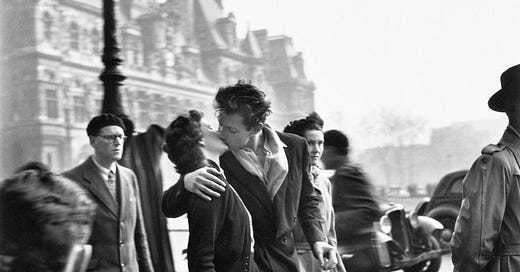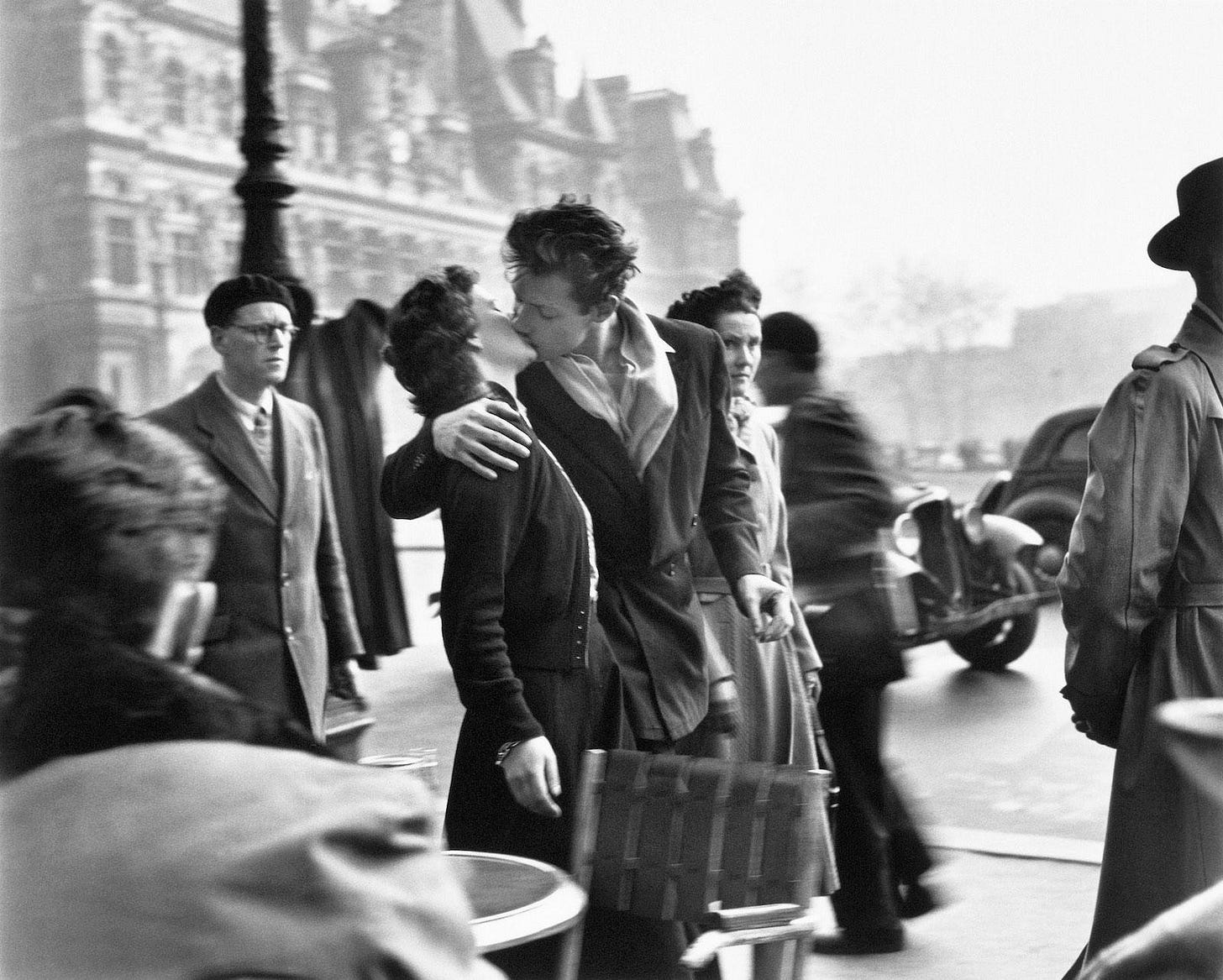Figures of speech are a silly thing. I have had teachers, and readers, cross out many of mine, because they are too weird, or sloppy, or getting in the way of the story. A simple, direct phrase often does the trick. But it’s part of the fun. Trying out figurative language is like experimenting with a new word. When reading, I still look up what I don’t know. I play with the new discoveries. At first, it’s awkward, but then, eventually: like with all things, after enough practice, it sings.
Part of why I love learning a new word or turn of phrase is because uncovering it means I can come up with new ideas. I am sure there is a word for this experience in another language. What we’re able to name determines what we’re able to think. In Norwegian there’s a word for that feeling of being buried in a cozy environment while wind whips outside. In Spanish there are many forms of “I love you.” Testing reveals that people who are bilingual or trilingual think differently, and so, feel differently when using different tongues.
As someone who adores language, and reading, who worships writers, and socializes mainly with them, I am destined to have an aggressive take on Ai and language. So, that’s part of this, I acknowledge. I try not to be too much of a luddite, but maybe I am.
A month ago I was on the train to DC and I met a founder who runs an energy company. Coming back from Climate Week in New York, he said suddenly they were “the cool kids,” and that they all felt a bit awkward about it. This new AI energy demand, incredible for clean energy founders, felt “like a party at the end of the world.” I was perfectly positioned to be a nightmare. Over-caffeinated, all of my writerly impulses brewing, I told him that I didn’t get it. What was this going to yield for us? All of this machine-ing? I mentioned Snoop Dog’s gold-lacquered music video. He said, “to not be able to see its use is a limit of imagination.”
Look, I am not technical, so I should understand how narrow my view is. I have an aperture drawn to beauty, to all of the useless and the impractical and the feelings-focused. But this is what I know. Reading and writing taught me how to think. I believe I love the way I do because of Russian novels. I believe I have an inordinate amount of hope because of the 10,000 heroes journeys I digested during middle school. Every relationship I have is heightened because of my experience with language. To live deeply, you have to be able to engage with the world a step further. Nothing, to me, does this like engaging with literature, or with art more generally.
All of this to say: what does it mean when AI now reads and writes for us? It means we no longer think. If we no longer think, how can we feel? I get it, for many, Ai is about expediting all of that time-consuming admin work. But still, again: if we’re not reading and writing, we’re not thinking. Sure, there is a difference between a rote email and a novel. At the same time, I see AI as collapsing both. Part of our issue with books, and with corporate mechanics already, is that we have this functional fixedness with language. We rely on the go-to and the trite. Getting to the “so what" is already a nightmare!
It takes a lot of work to get toward originality. But what would we be without the attempt? Think of high school. What if you didn’t have to write those papers? Who would you be now? Maybe you were analytical, and you would be fine. But I bet writing essays on Jane Austen makes high schoolers sweeter. Maybe they will go into finance later, but don’t you think analyzing a Comedy of Manners makes someone more than what they are? Sure you can’t measure it. But you can imagine it. A 16-year-old with a bit more flourish on their love notes.
I write creatively and I write for work. At work, I exist in a nebulous place. People in “brand” refer to themselves as “creatives.” This is to say, there is a natural-born pretension in the industry to be more than what we are. This often leads to the grandiose and overwritten, to pretension without cause. And now the industry I am a part of so unsurprisingly, is turning to AI to get work done faster. Clients are doing it. The industry’s doing it.
There is a sign too. Look for it: The symphony.
AI loves to use the symphony as a metaphor, an analogy, a simile. That tech app? A symphony. The proposal? A symphony. The VC pitch deck? A symphony.
There is no joy in AI’s figurative language, and no searching, or attempt, or effort. This is not a hard-won outcome of a mind. The person telling me that this shit is a symphony is not thinking more, they are thinking less, and still expecting reward from the ornamentation. But what worries me more is what this signals. If the “creative” among us are turning to this “tool,” what does this mean for the non-creative? If the already more-inclined-to-feel in our world are flattening what could be original, I can only imagine what it’s doing and going to do to everyone else.
When readers, or teachers, crossed out my figurative shit, I often thought: fair enough. Most times, I listened to them. Or, if I didn’t I made it better. I justified the turn. Obfuscation never helps and the biggest effort in becoming a better writer, at least for me, has been to rid work of confusion. Ground people in space and time. Give a reason. Don’t think that they will know. If you’re being impressionistic or non-specific, make it intentional. Like they say, recount a dream, lose a reader. Oftentimes, the reliance on the figurative is nothing more than a writer peacocking, attempting to be clever. It’s why reading new writers can be grating.
But still, the figurative opens the world up to us. When our accepted phrases and language falls short, we can invent. This invention is shared and makes all of us better. I am worried about what happens when we lose our ability to do this. Even the creatively bent among us are starting to hand over this practice to machines. Maybe this means nothing now. But in five years, how will love letters look? You can’t automate human richness. To not be able to name, is to not be able to think. And if we can’t think, we can’t feel.










